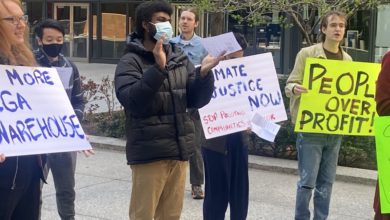The state of New Mexico has brought nine lawsuits against seven major oil and gas corporations in the state for failure to “remediate” land they abandoned after extracting all the resources they could from it. “Remediation” is a process where oil and gas companies, after draining resources from an area of land, have an obligation to clean it, close their wells, dig up extractive materials and restore vegetation.
In New Mexico, royalties from oil and gas operations produce about one-third of all state revenue. This creates a contradiction: Massive fossil fuel corporations are economic drivers in the state, but their operations destroy the environment. And state revenues from oil and gas production are increasing yearly in New Mexico. In 2018, that revenue grew by more than $910 million, a 39 percent growth from the previous year. This money is essential to one of the poorest states in the country.
This money creates a wide ranging set of problems. During extraction, pollution, fires, occasional explosions and even massive sinkholes are just some of the threats. But larger problems can also develop when oil and gas wells are tapped out.
Pollution on a massive scale, NM government finally acts
Extractive fossil fuel companies are required to renovate and thoroughly redevelop land after they use it up, according to the state’s Oil and Gas Lease Accountability and Enforcement Program. But given their financial dependency, New Mexico has been somewhat reluctant to enforce regulations.
The current lawsuits come after years of a lack of oversight. The problem has now become so serious that the New Mexico State Land Office has filed a collection of lawsuits relating to failure to comply with the terms of their lease of public land. All these companies failed to clean the land after production stopped and their leases expired.
The Oil and Gas Lease Accountability Program was announced in November 2020. This program allows the State Land Office to hold oil and gas companies accountable if they fail to clean up and remove all operational infrastructure after use.
Some of the charges levied against the corporations include the failure to remove garbage and debris from the land, abandoning infrastructure, failure to pay rent while continuing to produce oil and gas after the lease expired, and failure to clean up oil spills.
The nine lease sites cover 7,000 acres in the Permian Basin, a major oil and gas-producing region, as well as a site of hundreds of major oil spills. A report from the Center for Western Priorities showed that between New Mexico, Colorado and Wyoming, the three biggest oil-producing states in the Intermountain West, 2,811 spills were reported last year, releasing 23,600 barrels of crude oil and 170,223 barrels of produced water.
Investigators have reported serious environmental negligence and damage at all of the reclaimed sites — posing a problem that could cost hundreds of thousands of dollars.
Biden and NM Democrats hand-in-hand with polluters
The Biden administration’s lack of action on fossil fuel extraction and pollution by oil and gas mega-corporations highlights the same capitalist contradiction existing in New Mexico. These industries are hugely profitable, but masses of people are demanding action on climate change, and the Earth can only take so much abuse.
A few months ago, Biden issued a limited executive order halting fracking operations on federal land. Soon after, New Mexico’s Democrat Governor Michele Lujan Grisham met directly with the president, and recently wrote a letter to him, asking for a waiver to continue these operations. Grisham pleaded that the loss of revenue will severely limit the state’s ability to develop and fund desperately needed social programs like early childhood education. The failure of the American capitalist system could not be clearer.
We must move away from fossil fuels
Oil and gas companies must be held accountable for their pollution and destruction of the land as well as their contributions to climate change. New Mexico must be aggressive in using the law to stop this environment destruction. At the same time, it must also create strategies that will end the dependence on oil and gas revenue to finance state operations.
Winning lawsuits to reclaim land is an important step, but it does not solve the fundamental problem. More important is the need to abandon fossil fuels as our primary source of energy. We have less than 10 years left to take the steps needed to avoid runaway climate change. Only by having an economy that is dedicated to serving people instead of profits can this change take place.
Photo credit: Gil Foot, Flickr CC-BY-NC-ND 20






